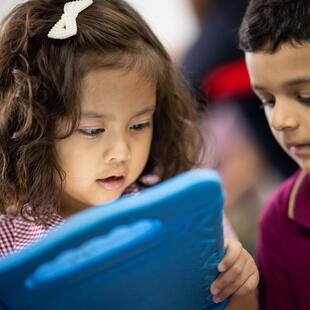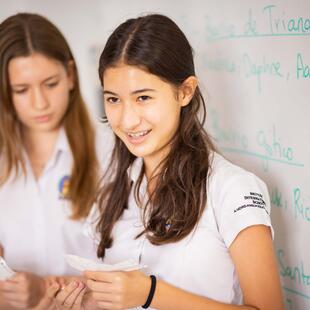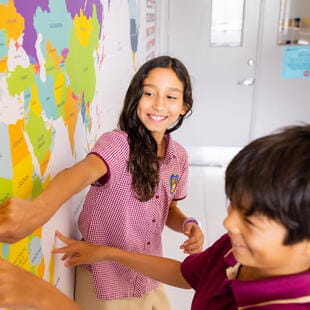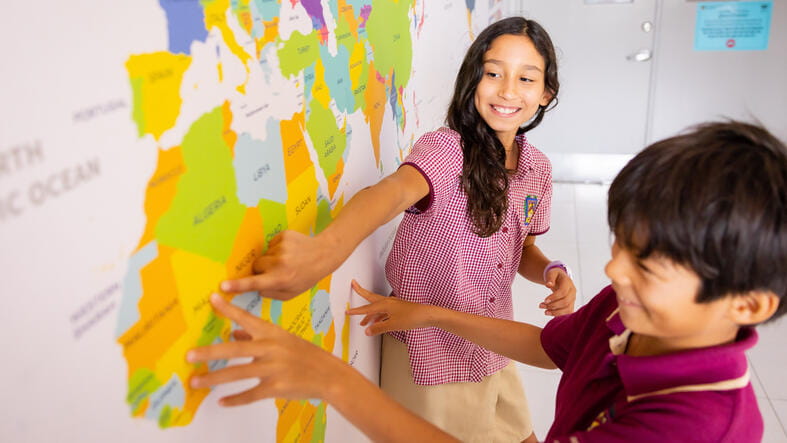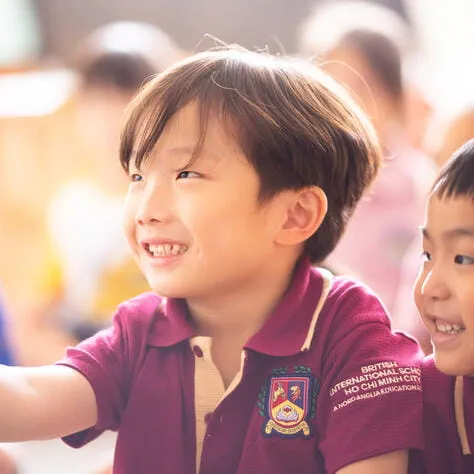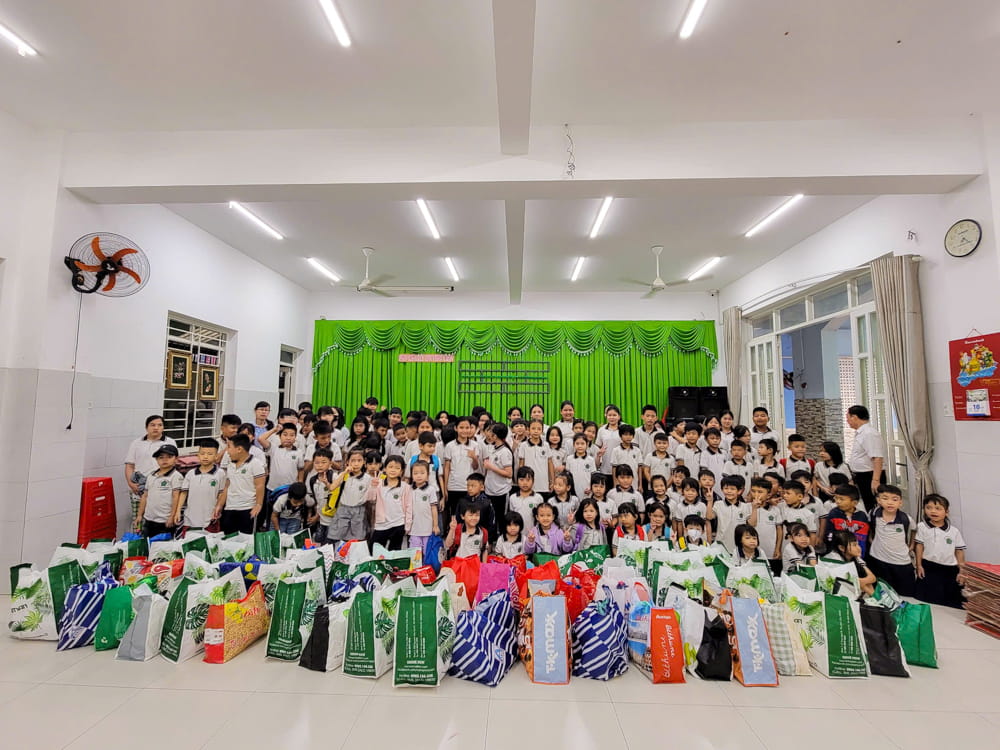We believe that an outstanding education should be packed with unforgettable experiences and opportunities, which balance our students’ academic growth with their personal, physical, and emotional development.
This includes our trailblazing collaborations, which transform learning in and beyond the classroom. Our STEAM programme with MIT opens our students’ eyes to the infinite possibilities of science, technology, engineering, arts, and maths. And our collaboration with The Juilliard School, the world’s leading performing arts conservatory, offers the highest quality artistic education, setting our students up for the international stage.
There really is something for everyone on our co-curricular programme, too, with more than 100 activities on each of our three campuses. Sport, drama, music, arts, leadership, the environment, politics – your child will do what they love, discover new interests, and obtain lifelong transferable skills.
Your child will also go on exhilarating expeditions, taking them on adventures in Vietnam and across the world. From spending time with local communities in Kon Tum to driving change on our social outreach project in Cambodia, each trip challenges our students’ way of thinking, builds their courage and determination, and develops their sense of self.
Of course, our passion for wellbeing shapes every experience we offer. Led by our pastoral team, our dedicated wellbeing programme will keep your child safe and healthy at school.


















